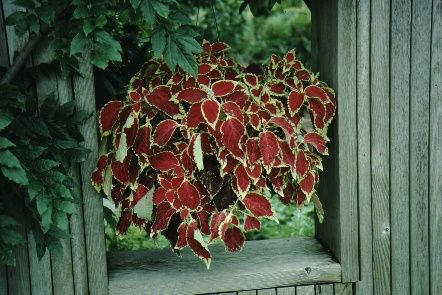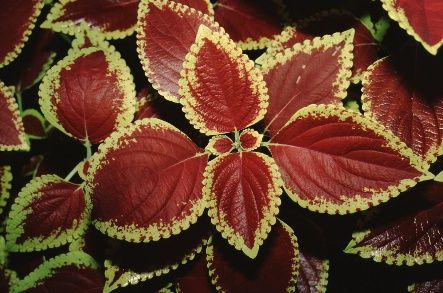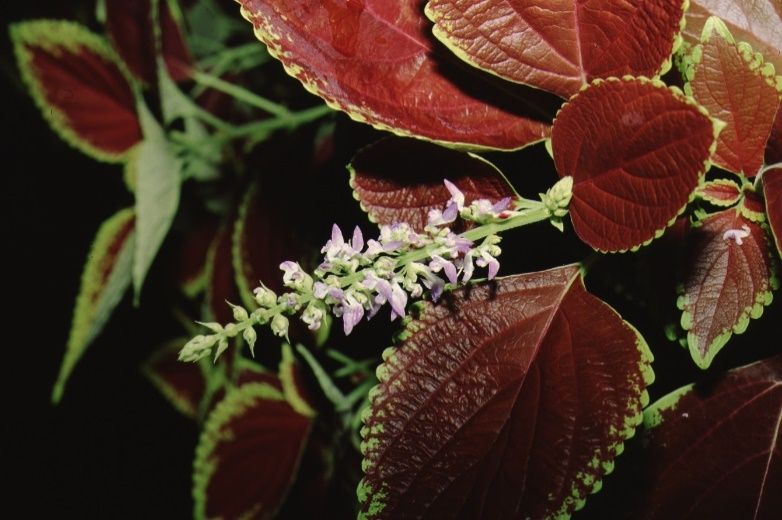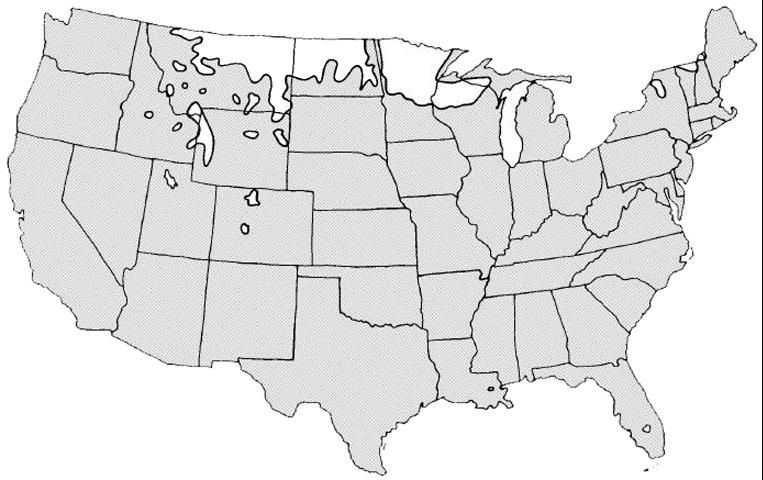Introduction
Although coleus does flower, it is grown for its brightly colored leaves. The plant grows in sun to partial shade and requires a lot of water. Coleus reaches 20 to 24 inches tall but trailing types can be used in hanging pots. Pinch young plants or older, leggy plants to encourage branching for a fuller plant. Coleus may be used as a potted plant indoors in a sunny window or outdoors in part sun. They are sometimes planted en mass on 12 to 18 inch centers to add a splash of bright color to any landscape. A mass planting looks nice with a backdrop of green shrubs. Remove flower spikes as they appear to encourage more foliage growth. Cold wet soils and poor cultural practices can result in leaf drop.

Credit: Edward F. Gilman, UF/IFAS

Credit: Edward F. Gilman, UF/IFAS

Credit: Edward F. Gilman, UF/IFAS
General Information
Scientific name: Coleus x hybridus
Pronunciation: KOE-lee-us x HYE-brid-us
Common name(s): coleus
Family: Labiatae
Plant type: annual
USDA hardiness zones: all zones (Figure 4)
Planting month for zone 7: Jun; Jul; Aug
Planting month for zone 8: May; Jun; Jul; Aug
Planting month for zone 9: Mar; Apr; May; Jun; Jul; Aug; Sep; Oct
Planting month for zone 10 and 11: Mar; Apr; May; Jun; Jul; Aug; Sep; Oct
Origin: not native to North America
Invasive potential: not known to be invasive
Uses: mass planting; container or above-ground planter; edging; accent
Availability: generally available in many areas within its hardiness range

Credit:
Description
Height: 1 to 3 feet
Spread: 1 to 3 feet
Plant habit: round
Plant density: dense
Growth rate: moderate
Texture: medium
Foliage
Leaf arrangement: opposite/subopposite
Leaf type: simple
Leaf margin: crenate; lobed; undulate
Leaf shape: ovate
Leaf venation: bowed
Leaf type and persistence: not applicable
Leaf blade length: 4 to 8 inches
Leaf color: yellow; green; variegated
Fall color: not applicable
Fall characteristic: not applicable
Flower
Flower color: blue
Flower characteristic: inconspicuous and not showy
Fruit
Fruit shape: no fruit
Fruit length: no fruit
Fruit cover: no fruit
Fruit color: not applicable
Fruit characteristic: inconspicuous and not showy
Trunk and Branches
Trunk/bark/branches: not applicable
Current year stem/twig color: green
Current year stem/twig thickness: very thick
Culture
Light requirement: plant grows in part shade/part sun
Soil tolerances: clay; sand; acidic; loam
Soil salt tolerances: unknown
Plant spacing: 12 to 18 inches
Other
Roots: not applicable
Winter interest: not applicable
Outstanding plant: not particularly outstanding
Pest resistance: long-term health usually not affected by pests
Use and Management
Coleus is propagated by seed and cuttings. Cuttings as short as two inches can be taken from newly grown shoots and rooted in plain water. The seed germinates in 10 to 14 days at 70°F to 75°F. Light stimulates germination so seed should not be covered. Set plants outside after the weather has warmed. In USDA hardiness zones 8 to 11, coleus can be set out spring through late summer. Winter plantings are successful in south Florida in the full sun provided adequate moisture is available.
Pest and Diseases
Mites cause the leaves to be puckered and distorted.